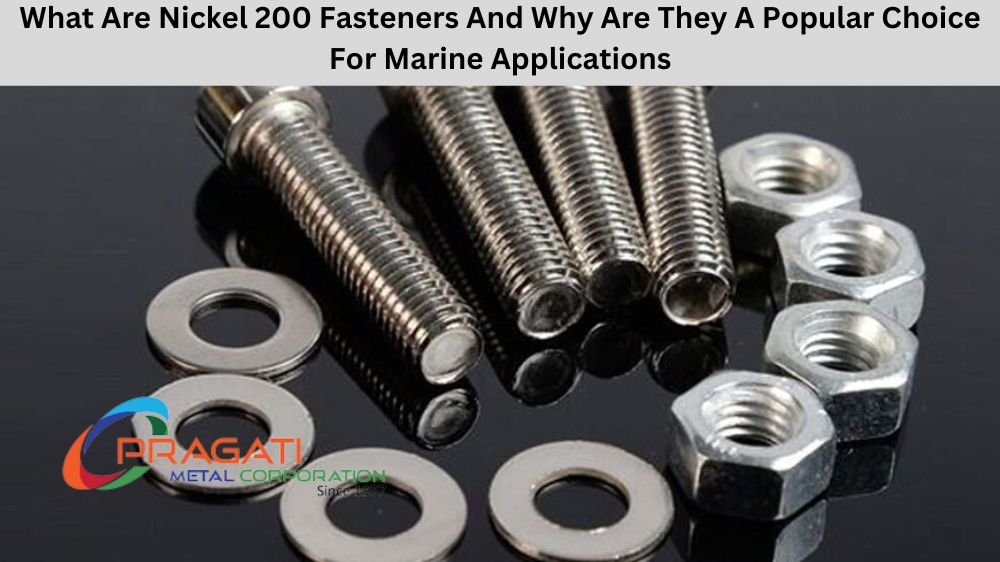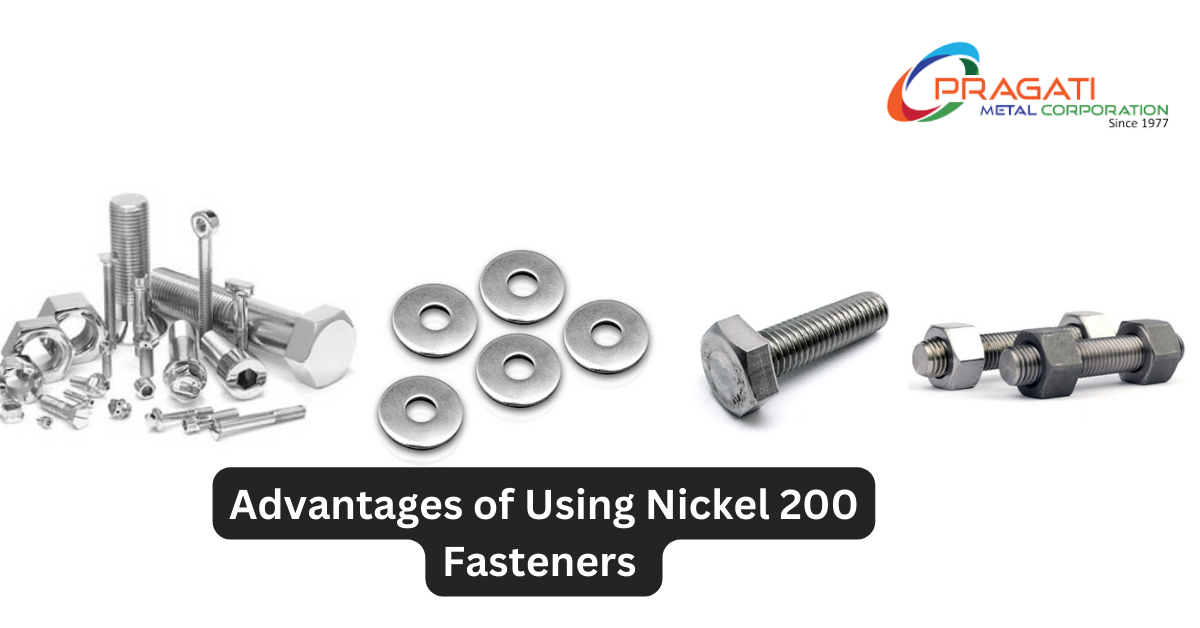What Are Nickel 200 Fasteners Are Popular Choice For Marine Applications
When it comes to marine applications, using the right fasteners is critical. One type of fastener that has gained popularity in this industry is the Nickel 200 fastener. Nickel 200 is a strong and durable metal that can withstand harsh marine environments. In this post, we’ll look closely at what Nickel 200 fasteners are and uncover why they are a popular choice for marine applications.
What Are Nickel 200 Fasteners?
Nickel 200 is a commercially pure grade of nickel that offers excellent resistance to corrosion and high temperatures. Nickel 200 fasteners are made from this material and come in a variety of shapes and sizes, including screws, bolts, nuts, washers, and pins. These fasteners are ideal for marine applications because they resist saltwater corrosion. Unlike other metals, which can corrode easily in harsh environments, Nickel 200 fasteners provide long-lasting durability.
Why Nickel 200 Fasteners In Marine Applications
Nickel 200 fasteners offer a range of benefits that make them the ideal choice for marine applications. One of the main advantages is their excellent corrosion resistance. They are immune to sea salt corrosion, seawater, and saline solutions, which means they can withstand the harsh marine environment. These fasteners also provide excellent durability, meaning they can withstand constant exposure to saltwater and marine elements. Also, Nickel 200 fasteners offer high-temperature resistance, making them ideal for marine applications where temperatures fluctuate.
Cost-Effective And Low Maintenance
Another benefit of Nickel 200 fasteners is that they are cost-effective and require low maintenance. These fasteners have low lifecycle costs, meaning you can install them in various applications without worrying about the high maintenance and replacement costs. Additionally, they require minimal upkeep and can last for years without needing to be replaced.
Aesthetically Appealing
Besides the functional benefits, Nickel 200 fasteners look great in marine applications. These sleek and aesthetically appealing fasteners add a touch of elegance to the vessel or equipment. They come in various finishes, including polished, brushed, and anodized, allowing you to customize the design without compromising functionality.
Versatility
Nickel 200 fasteners are versatile and can be used in marine applications, including boat building, ship repair, and equipment installations. They are also suitable for use in the oil and gas industry, desalination plants, and marine power plants. Their versatility means they can be used in various conditions and applications.
In summary, Nickel 200 fasteners are ideal for marine applications due to their excellent corrosion resistance, durability, cost-effectiveness, ease of maintenance, aesthetic appeal, and versatility. If you need a reliable and sturdy fastener for your marine application, Nickel 200 fasteners are an excellent option. Whether you’re building a new boat, repairing an existing vessel, or installing equipment, Nickel 200 fasteners will surely provide the strength and durability you need.



